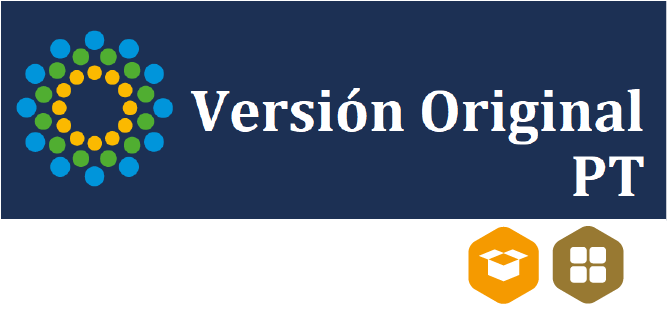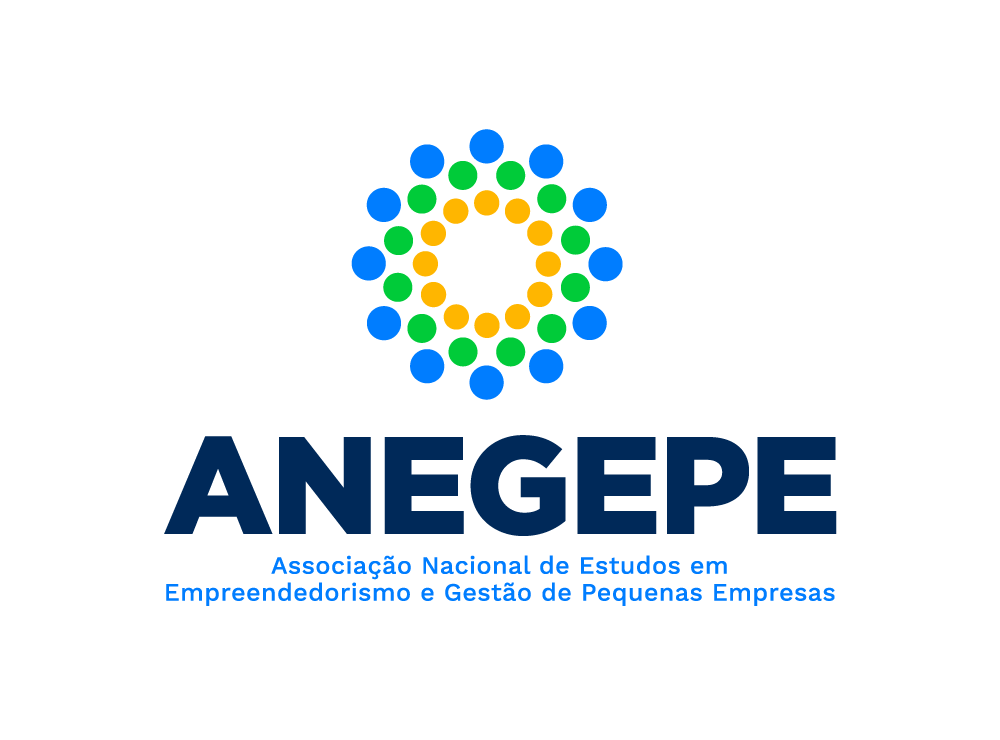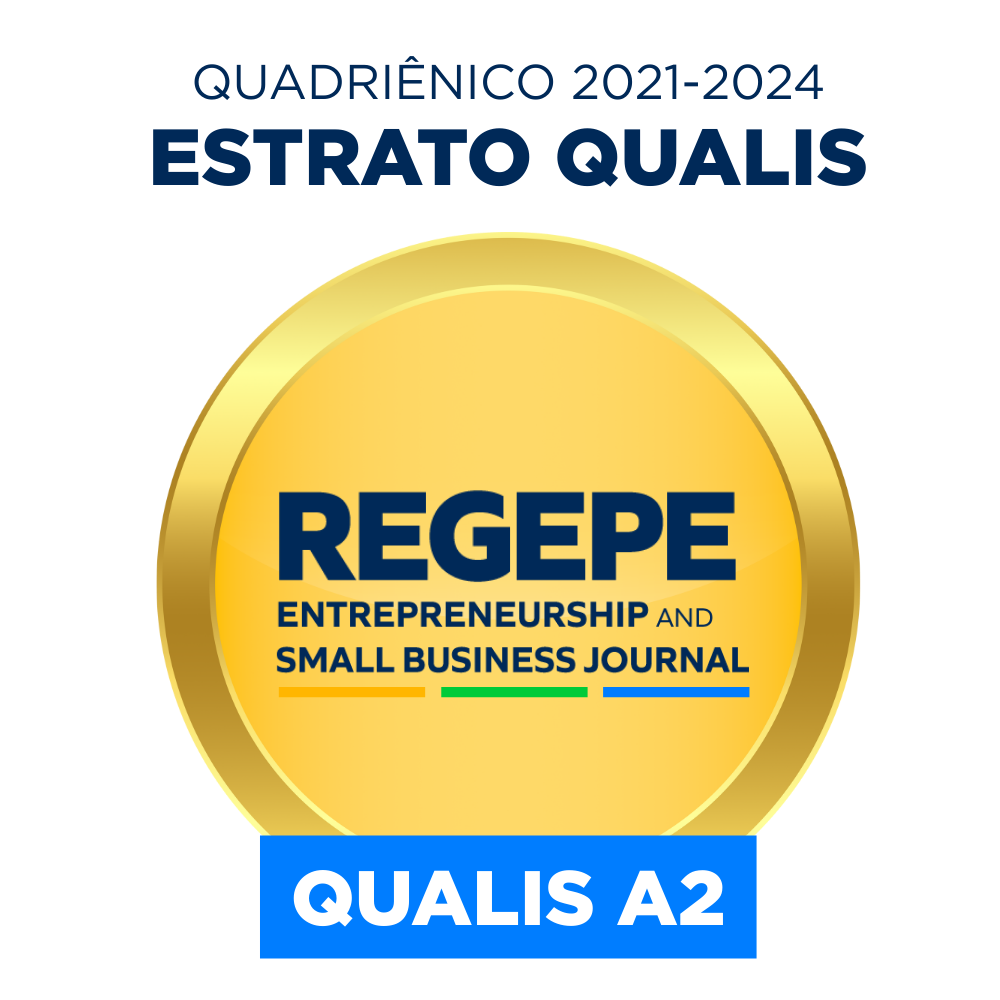La jornada de preparación para la certificación B en una pequeña empresa de servicios: Logros, desafíos y aprendizajes de una investigación-acción
DOI:
10.14211/regepe.esbj.e2613Palabras clave:
Empresas B, Pequeñas y medianas empresas, Investigación-acción., Sostenibilidad, Gobernanza corporativaResumen
Objetivo del estudio: Investigar el proceso de preparación de una pequeña empresa de servicios para la certificación como Empresa B, con el objetivo de apoyar la transición y generar aprendizajes sobre este proceso. Metodología: El estudio se llevó a cabo utilizando el enfoque de investigación-acción, lo que permitió una interacción cercana con la empresa analizada. Principales resultados: El proceso culminó con la con la presentación de la Evaluación de Impacto B (BIA) para la certificación de la empresa como Empresa B. La formalización de la gobernanza corporativa y la implementación de mecanismos para alinear los objetivos socioambientales con los estratégicos fueron identificados como factores críticos para el éxito de la transición. Contribuciones teóricas: El estudio amplía la comprensión sobre la transición de pequeñas empresas hacia modelos de negocio sostenibles, destacando la importancia de prácticas de gobernanza y alineación estratégica. Además, identifica desafíos específicos que enfrentan las pequeñas y medianas empresas (PYMES) en el contexto de la certificación como Empresa B. Relevancia: La investigación aborda un tema de gran relevancia en el contexto actual. El estudio se centra en PYMES, un grupo a menudo subestimado en las discusiones sobre prácticas de sostenibilidad, pero que representa una parte significativa de las economías globales. Contribución para la gestión: Los hallazgos ofrecen ideas prácticas para gestores de PYMES. La formalización de la gobernanza y el alineamiento entre los objetivos socioambientales y la estrategia empresarial se presentan como prácticas fundamentales para el éxito en la transición hacia modelos de negocio sostenibles.
Descargas
Traducciones de este artículo.
Citas
B Corporation. (2024a). B Impact Assessment. Retrieved November 15, 2024, from https://www.bcorporation.net/en-us/programs-and-tools/b-impact-assessment
B Corporation. (2024b). How many Certified B Corps are there around the world? Retrieved November 20, 2024, from https://www.bcorporation.net/en-us/faqs/how-many-certified-b-corps-are-there-around-world/
B Lab United States & Canada. (2023). What’s behind the B? Certified B Corporations are a better kind of business. Retrieved June 10, 2023, from https://usca.bcorporation.net/about-b-corps/
Battilana, J., & Dorado, S. (2010). Building sustainable hybrid organizations: The case of commercial microfinance organizations. Academy of Management Journal, 53(6), 1419–1440. https://doi.org/10.5465/amj.2010.57318391
Battilana, J., & Lee, M. (2014). Advancing research on hybrid organizing – insights from the study of social enterprises. Academy of Management Annals, 8(1), 397–441. https://doi.org/10.5465/19416520.2014.893615
Bradbury-Huang, H. (2010). What is good action research? Why the resurgent interest? Action Research, 8(1), 93–109. https://doi.org/10.1177/1476750310362435
Branzei, O., Muñoz, P., Russell, S., & Whiteman, G. (2017). Call for papers. Special Issue on “Regenerative organizations: Business and climate action beyond mitigation and adaptation.” Organization & Environment, 30(3), 275–277. Retrieved May 23, 2023, from https://www.jstor.org/stable/26408341
Brigas-Fernández, V., López-Gutiérrez, C., & Pérez, A. (2024). B-CORP certification and financial performance: A panel data analysis. Heliyon, 10(17), e36915.
Cao, K., Gehman, J., & Grimes, M. G. (2017). Standing out and fitting in: Charting the emergence of certified B corporations by industry and region. In A. C. Corbett & J. A. Katz (Eds.), Hybrid Ventures - Advances in Entrepreneurship, Firm Emergence and Growth (Vol. 19, pp. 1–38). https://doi.org/10.1108/S1074-754020170000019001
Carvalho, B., Wiek, A., & Ness, B. (2022). Can B Corp certification anchor sustainability in SMEs? Corporate Social Responsibility and Environmental Management, 29(1), 293–304. https://doi.org/10.1002/csr.2192
Coghlan, D. (2019). Doing action research in your own organization (5th ed.). London: Sage Publications.
Conger, M., McMullen, J. S., Bergman, B. J., York, J. G. (2018). Category membership, identity control, and the re-evaluation of prosocial opportunities. Journal of Business Venturing, 33(2), 179–206. https://doi.org/10.1016/j.jbusvent.2017.11.004
Delmas, M. A., & Burbano, V. C. (2011). The drivers of greenwashing. California Management Review, 54(1), 64–87. https://doi.org/10.1525/cmr.2011.54.1.64
Diez-Busto, E., Sanchez-Ruiz, L., & Fernandez-Laviada, A. (2021). The B Corp movement: A systematic literature review. Sustainability, 13(5), 2508. https://doi.org/10.3390/su13052508
Ebrahim, A., Battilana, J., & Mair, J. (2014). The governance of social enterprises: Mission drift and accountability challenges in hybrid organizations. Research in Organizational Behavior, 34, 81–100. https://doi.org/10.1016/j.riob.2014.09.001
Eden, C., & Huxham, C. (1996). Action research for management research. British Journal of Management, 7(1), 75–86. https://doi.org/10.1111/j.1467-8551.1996.tb00107.x
Elkington, J. (2018). 25 years ago, I coined the phrase “Triple Bottom Line.” Here’s why it’s time to rethink it. Harvard Business Review. Retrieved June 11, 2023, from https://hbr.org/2018/06/25-years-ago-i-coined-the-phrase-triple-bottom-line-heres-why-im-giving-up-on-it
Gamble, E. N., Parker, S. C., & Moroz, P. W. (2020). Measuring the integration of social and environmental missions in hybrid organizations. Journal of Business Ethics, 167(2), 271–284. https://doi.org/10.1007/s10551-019-04146-3
Gehman, J., & Grimes, M. (2017). Hidden badge of honor: How contextual distinctiveness affects category promotion among certified B corporations. Academy of Management Journal, 60(6), 2294–2320. https://doi.org/10.5465/amj.2015.0416
Gehman, J., Grimes, M., & Cao, K. (2019). Why we care about certified B corporations: From valuing growth to certifying values practices. Academy of Management Discoveries, 5(1), 97–101. https://doi.org/10.5465/amd.2018.0074
Haigh, N., & Hoffman, A. J. (2012). Hybrid organizations: The next chapter of sustainable business. Organizational Dynamics, 41(2), 126–134. https://doi.org/10.2139/ssrn.2933616
Haigh, N., Walker, J., Bacq, S., & Kickul, J. (2015). Hybrid organizations: Origins, strategies, impacts, and implications. California Management Review, 57(3), 5–12. https://doi.org/10.1525/cmr.2015.57.3.5
Handley, K., & Molloy, C. (2022). SME corporate governance: A literature review of informal mechanisms for governance. Meditari Accountancy Research, 30(7), 310–333. https://doi.org/10.1108/MEDAR-06-2021-1321
Harjoto, M. A., Laksmana, I., & Yang, Y. W. (2019). Board nationality and educational background diversity and corporate social performance. Corporate Governance: The International Journal of Business in Society, 19, 217–239. https://doi.org/10.1108/CG-04-2018-0138
Herr, K., & Anderson, G. (2015). The action research dissertation. London: SAGE Publications.
Hunter, J. M., & De Giacomo, M. R. (2023). The environmental performance of B Corp SMEs and the occurrence of greenwashing. Sinergie, 41(3), 49–69.
Johnson, M. (2018). Awareness and application of sustainability management tools in small and medium-sized enterprises. Academy of Management Annual Proceedings. https://doi.org/10.5465/ambpp.2013.16036abstract
Johnson, M., & Schaltegger, S. (2016). Two decades of sustainability management tools for SMEs: How far have we come? Journal of Small Business Management, 54(2), 481–505. https://doi.org/10.1111/jsbm.12154
Kim, S., Karlesky, M. J., Myers, C. G., & Schifeling, T. (2016). Why companies are becoming B Corporations. Harvard Business Review Online, 17, 1–5. Retrieved November 15, 2024, from https://hbr.org/2016/06/why-companies-are-becoming-b-corporations#:~=The%20qualitative%20evidence%2C%20gathered%20from,set%20of%20rules%E2%80%9D%20and%20%E2%80%9Credefine
Mair, J., Mayer, J., & Lutz, E. (2015). Navigating institutional plurality: Organizational governance in hybrid organizations. Organization Studies, 36(6), 713–739. https://doi.org/10.1177/0170840615580007
McNiff, J., Lomax, P., & Whitehead, J. (1996). You and your action research project. Routledge.
Miguel, P. (2018). Metodologia de pesquisa em engenharia de produção e gestão de operações (3rd ed.). Elsevier Brasil.
Moroz, P. W., Branzei, O., Parker, S. C., & Gamble, E. N. (2018). Imprinting with purpose: Prosocial opportunities and B Corp certification. Journal of Business Venturing, 33(2), 117–129. https://doi.org/10.1016/j.jbusvent.2018.01.003
Muñoz, P., Cacciotti, G., & Cohen, B. (2018). The double-edged sword of purpose-driven behavior in sustainable venturing. Journal of Business Venturing, 33(2), 149–178. https://doi.org/10.1016/j.jbusvent.2017.12.005
Nigri, G., Michelini, L., & Griecco, C. (2017). Social impact and online communication in B-corps. Global Journal of Business Research, 11(3), 87–104. Retrieved June 28, 2023, from https://ssrn.com/abstract=3071156
ONU. (2024). Objetivos de desenvolvimento sustentável. Retrieved November 15, 2024, from https://brasil.un.org/pt-br/sdgs
Rankin, C., & Matthews, T. (2020). Patterns of B Corps certification: The role of institutional, economic, and political resources. Societies, 10(3), 1–12. https://doi.org/10.3390/soc10030072
Revell, A., Stokes, D., & Chen, H. (2010). Small businesses and the environment: Turning over a new leaf? Business Strategy and the Environment, 19(5), 273–288. https://doi.org/10.1002/bse.628
Ruozzi, A., & Vicente, J. A. (2021). Entrepreneurial framework conditions and impact scores of small-size Certified Benefit Corporations (CBCs): A configurational analysis of 17 countries. Sustainability, 13(13). 7297, https://doi.org/10.3390/su13137297
Santos, F. M., Pache, A. C., & Birkholz, C. (2015). Making hybrids work: Aligning business models and organizational design for social enterprises. California Management Review, 57(3), 36–58. https://doi.org/10.1525/cmr.2015.57.3.36
Schaltegger, S., Girschik, V., Trittin-Ulbrich, H., Weissbrod, I., & Daudigeos, T. (2024). Corporate change agents for sustainability: Transforming organizations from the inside out. Business Ethics, the Environment & Responsibility, 33, 145-156. https://doi.org/10.1111/beer.12645
Schevchenko, A., Levesque, M., & Pagell, M. (2016). Why firms delay reaching true sustainability. Journal of Management Studies, 53(5). 911–935, https://doi.org/10.1111/joms.12199
Silva, V., Lima, V., Sá, J. C., Fonseca, L., & Santos, G. (2022). B Impact Assessment as a sustainable tool: Analysis of the certification model. Sustainability, 14(9), 5590. https://doi.org/10.3390/su14095590
Sloan, K., Klingenberg, B., & Rider, C. (2013). Towards sustainability: Examining the drivers and change process within SMEs. Journal of Management and Sustainability, 3(2), 19–30. https://doi.org/10.5539/jms.v3n2p19
Stubbs, W. (2017a). Characterizing B Corps as a sustainable business model: An exploratory study of B Corps in Australia. Journal of Cleaner Production, 144, 299–312. https://doi.org/10.1016/j.jclepro.2016.12.093
Stubbs, W. (2017b). Sustainable entrepreneurship and B Corps. Business Strategy and the Environment, 26(3), 331–344. https://doi.org/10.1002/bse.1920
Stubbs, W., Farrelly, M., Fabianke, K., Burch, S., & Ramesh, P. (2024). Sustainable business models in ‘lighthouse’ small to medium enterprises. Journal of Management & Organization, 30(4), 466–489. https://doi.org/10.1017/jmo.2023.5
Tabares, S. (2021). Certified B corporations: An approach to tensions of sustainable-driven hybrid business models in an emerging economy. Journal of Cleaner Production, 317, 128380. https://doi.org/10.1016/j.jclepro.2021.128380
Villela, M., Bulgacov, S., & Morgan, G. (2021). B Corp certification and its impact on organizations over time. Journal of Business Ethics, 170(2), 343–357. https://doi.org/10.1007/s10551-019-04372-9
Wecker, A. C., & Froehlich, C. (2022). The B Corp movement, advantages, and challenges: The perception of certified Brazilian companies. Revista de Administração da UFSM, 15(4), 596–614. https://doi.org/10.5902/1983465969844

Descargas
Publicado
Métricas
Visualizações do artigo: 2350 PDF (Português (Brasil)) downloads: 220 Áudio (Português (Brasil)) downloads: 32 Vídeo (Português (Brasil)) downloads: 43 XML (Português (Brasil)) downloads: 0 Pareceres (Português (Brasil)) downloads: 83
Cómo citar
Número
Sección
Licencia
Derechos de autor 2025 Fernando Oliani Vieira da Silva, Thomaz Wood Jr.

Esta obra está bajo una licencia internacional Creative Commons Atribución 4.0.
Los autores que publican en esta revista están de acuerdo con los siguientes términos:
-
El/La autor(a)/es(as) autorizan la publicación del texto en la revista;
-
La revista no se responsabiliza de las opiniones, ideas y conceptos emitidos en los textos, ya que son de entera responsabilidad de sus autores/autoras;
-
Los autores/autoras mantienen los derechos de autor y conceden a la revista el derecho de la primera publicación, con el trabajo publicado bajo la Licencia CC BY 4.0
, que permite el compartir el trabajo con reconocimiento de la autoría y la publicación inicial en esta revista;
-
Los autores/autoras están permitidos y animados a publicar su trabajo (Versión enviada, Versión aceptada [Manuscrito aceptado por el autor/autora] o Versión publicada [Versión del registro]) en línea, por ejemplo, en repositorios institucionales o preprints, ya que puede llevar a intercambios productivos, así como a citas anteriores y mayores de trabajos publicados. REGEPE pide como condición política para los autores/autoras que indiquen/vinculen el artículo publicado con DOI. Vea el Efecto del Acceso Abierto.















